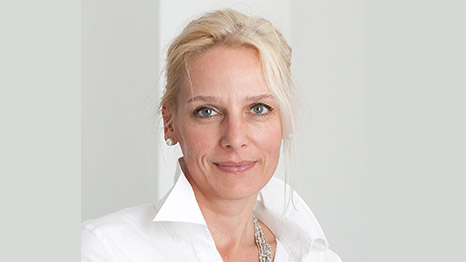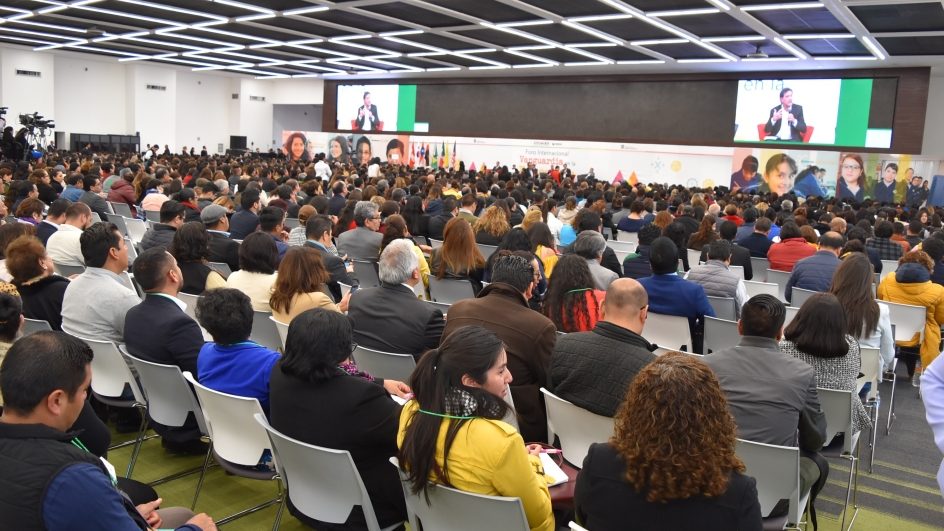
»STEM education is a key factor for creating jobs and ensuring prosperity.«
STEAM regions in Latin America
Last year, Siemens Stiftung helped establish six STEAM regions in Latin America. The abbreviation STEAM stands for Science, Technology, Engineering, Arts and Mathematics. The goal of the regional clusters is to master 21st-century challenges in education and the working world as well as facilitate sustainable social development. Ulrike Wahl, Siemens Stiftung employee in Latin America, explains why the region is particularly open to innovative educational approaches and what makes the approach in STEAM regions so effective.
Why is STEAM so important in Latin America?
In Latin America as well as in Germany and other countries, the challenge challenge lies in modifying science and technology education to better impart skills necessary for the 21st century such as creativity, value orientation or problem-solving competences An economic necessity in Latin America, STEAM bridges a gap between the natural sciences and the more creative and humanities subjects.In times of rapid technological development, science and technology education is a key factor for creating jobs and ensuring prosperity.
For this reason, countries are prioritizing STEAM education more and more. Programs for sustainable social development regularly feature STEAM education as a key component.
Siemens Stiftung has experience with STEAM regions in Germany. Why has the foundation decided to transfer the concept to Latin America?
The idea of a “STEAM Territorio,” as it’s called in Spanish, is based on the cooperation model of the German “MINT-Regionen” – regional alliances for MINT (STEAM) education in Germany that are shaped heavily by the Körber Foundation and supported by the Nationales MINT Forum (National STEM Forum, Germany). In Germany we were able to ascertain the enormous effect that can result from stakeholders setting mutual goals for a better education and then transparently sharing their experiences with each other.
With its international education program Experimento, which is geared toward the skills of the 21st century, Siemens Stiftung has been active in the STEAM field in Latin America for many years. We’re now working with more than 25 cooperation partners, which includes universities, educational institutions and NGOs. A good prerequisite, in other words, for us to transfer this idea to our regional networks and systematically bring them together.
How would you describe the current state of development of the STEAM regions and what must still be achieved?
In Latin America there are currently six STEAM regions, which, depending on regional distinctions, are also called either STEM or STEM+H regions. Medellín, Colombia; Tacna and Miraflores/Lima, Peru; Macrozona Sur Chile, Valparaiso, Chile; and the State of Mexico, Mexico. In each of these, different institutions have assumed the coordination role: a university, a state education authority, a regional government and a municipality. People are currently sharing their experiences in these regions, and concrete measures are now being drafted.
Overall, the objective is for these regional alliances to have a greater influence on the respective education agendas by carrying more weight as well as having a voice, in addition to being able to coordinate their projects more effectively.
What role will Siemens Stiftung play in these regional alliances in the future?
Siemens Stiftung stands for content-driven, nonpartisan, transparent and pluralistic cooperation. We will remain members in all STEAM regions and have motivated people to form working groups on specific topics within and between the STEAM regions.
An important topic we wish to dedicate ourselves to in the future is, for example, making the topic of climate change a core component of continuing education programs for teachers. Siemens Stiftung has been a partner of the Office for Climate Education (OCE) since it was founded on the initiative of the Foundation La main à la pâte after the Climate Change Conference in Paris in 2018. The Office of Climate Education’s regional conference will take place in Santiago de Chile in May 2019.
We continue to see our role in being active bridge-builders, providing impulses and being a good partner in exchanging content, contacts and experiences. Only in this way can we play an effective role in anchoring the significance of STEAM at the heart of the social development process.
December 2018
LinksWould you like to learn more?
Downloads
- Flyer Edcuation



